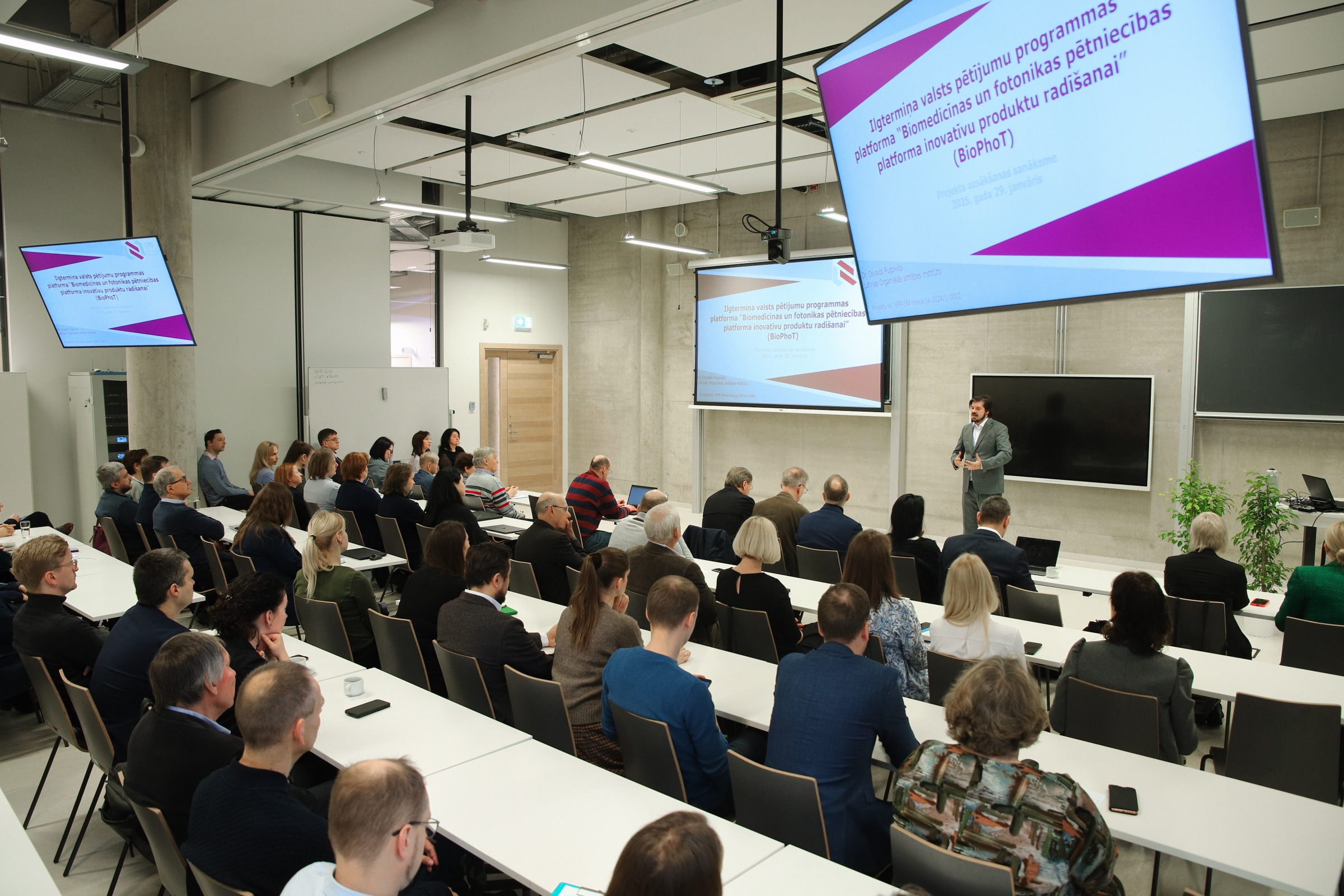Research and innovation projects in biomedicine, medical technologies, pharmaceuticals, photonics, smart materials, electronics, electrical engineering, technology and engineering systems will benefit from €12.8 million of state budget funding by the end of 2026. This will be provided by the implementation of the National Research Programme (NRP) platform "Biomedical and Photonics Research Platform for Innovative Products" or "BioPhoT".
Minister for Economic Affairs Viktors Valainis says: "It is essential to design and develop targeted support mechanisms to encourage the development of innovative technologies. The biomedical and photonics sectors have significant export potential based on innovation and the creation of new, competitive products. With financial support, their ideas can be transformed into marketable and high added value products. In the long term, this approach will strengthen Latvia's competitiveness in global markets, while fostering the development and innovation capacity of the biomedical and photonics industries."
BioPhoT will foster collaboration and technology development between the biomedical and photonics sciences and the commercial sector. Its strategic approach is to identify research with low technological readiness (Technology Readiness Level or TRL), but with high commercialisation potential. The financial support will contribute to the development of these ideas and to the long-term creation of competitive, marketable technologies and products based on scientific research in the biomedical and photonics fields.
"This approach will bridge the gap between science and the commercial sector, making it easier for inventions to cross the so-called 'valley of death' on their way to development. The creation of such a platform is an essential step in promoting excellence in Latvian technological innovation and increasing competitiveness in the global market, and will also serve as a basis for the development of future innovations," explains Project leader, Deputy Director of the Latvian Organic Synthesis Institute (OSI) Osvalds Pugovičs.
The platform is expected to be operational until 2032. Support for researchers' initiatives and responses to science-intensive challenges identified by the commercial sector is planned in three phases, the first of which - until 30 November 2026 - will see more than €12 million made available by Cabinet of Ministers specifically for innovation projects. Almost €5 million will be earmarked for improving scientists' innovation skills, including training on intellectual property protection. If the work is successful, public funding will also be made available for the next phases up to 2032.
By 2032, 35 new technologies are expected to have reached a proven technological basis (TRL 3 level) or technological validation under laboratory conditions (TRL 4 level). At least 23 of these technologies are expected to be developed to validation in real-life conditions (TRL 5 level) or for full-scale demonstration (TRL 6 level), while at least four will enter the commercialisation phase.
The first phase of the Platform will run until the end of 2026 and will include four calls for innovation projects. The first call is expected in February this year and is open to researchers developing new technologies and innovative ideas in the fields of biomedicine, medical technology, pharmaceuticals, photonics, smart materials, electronics, electrical engineering and technology and engineering systems. The maximum funding available per idea will be €200,000, with a 12-month timeframe.
BioPhoT is coordinated by OSI and implemented by the Institute of Electronics and Computer Science, the Latvian Biomedical Research and Study Centre, the University of Latvia, the Institute of Solid State Physics, the Latvian State Institute of Wood Chemistry, the Food Safety, Animal Health and Environment Research Institute "BIOR", Riga Stradins University and Riga Technical University.
